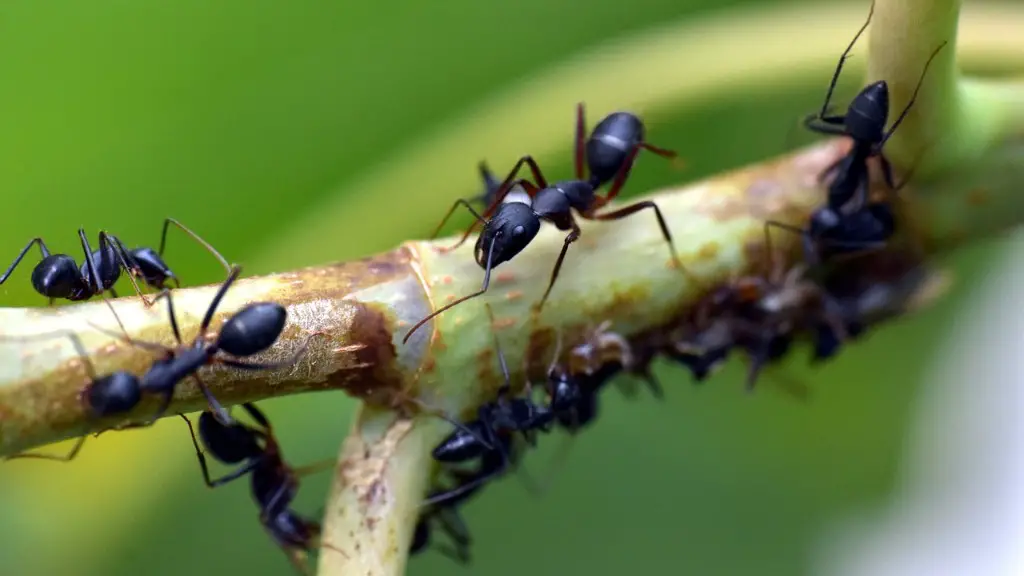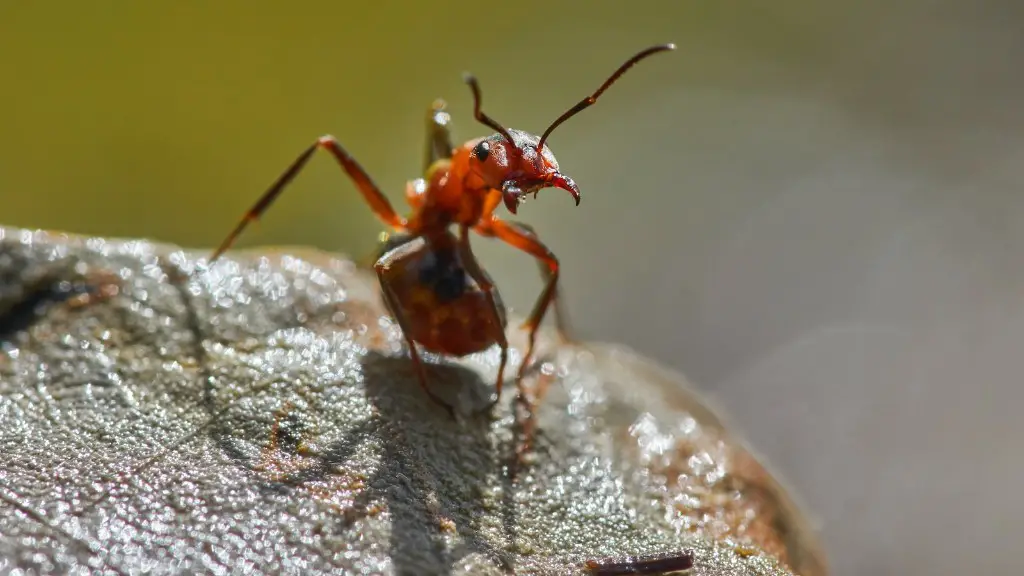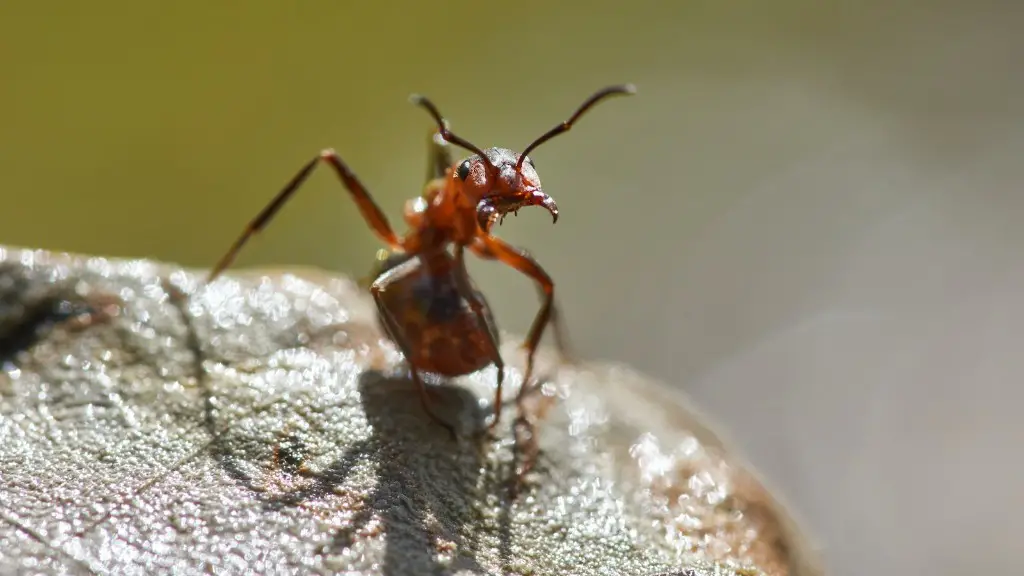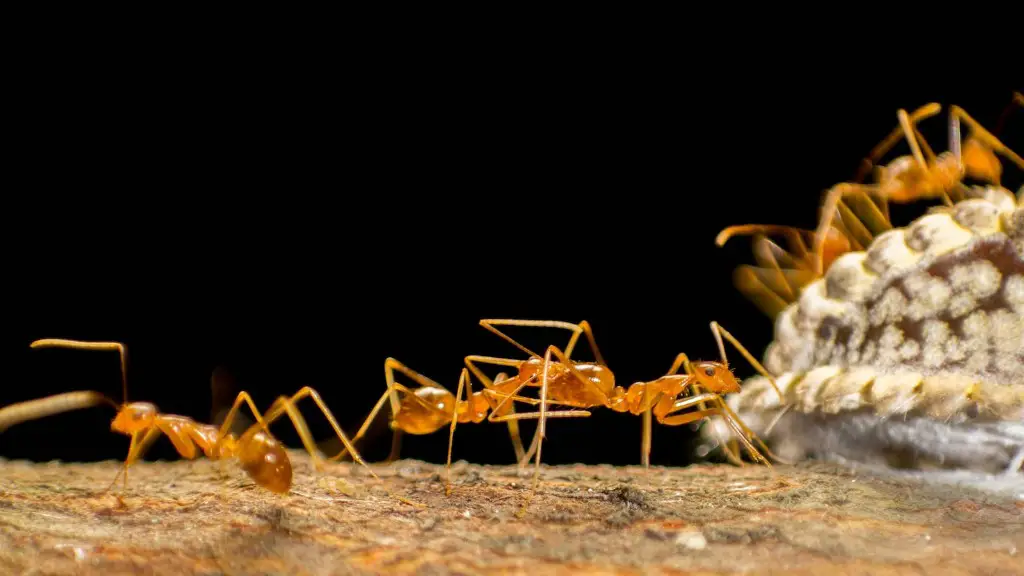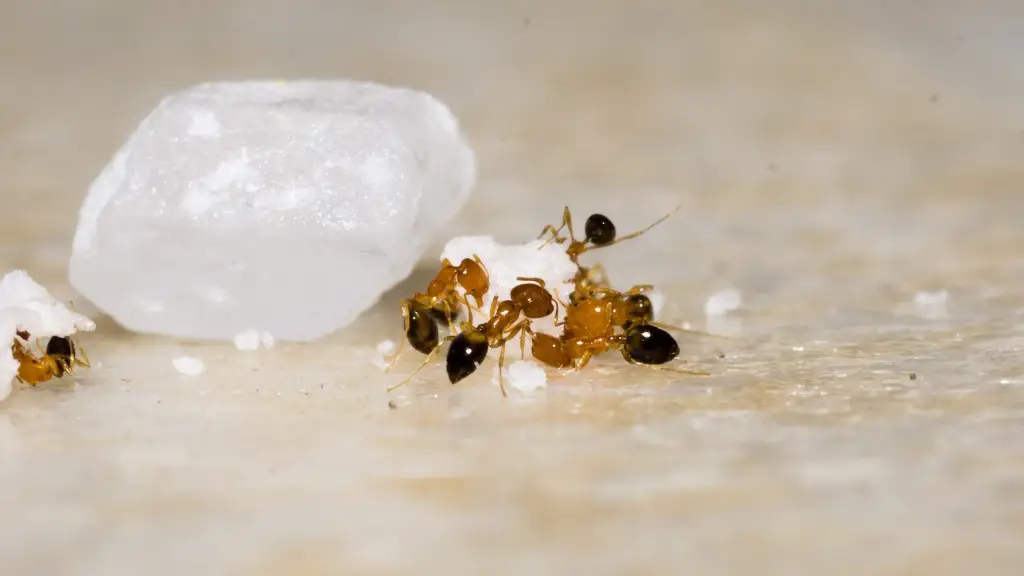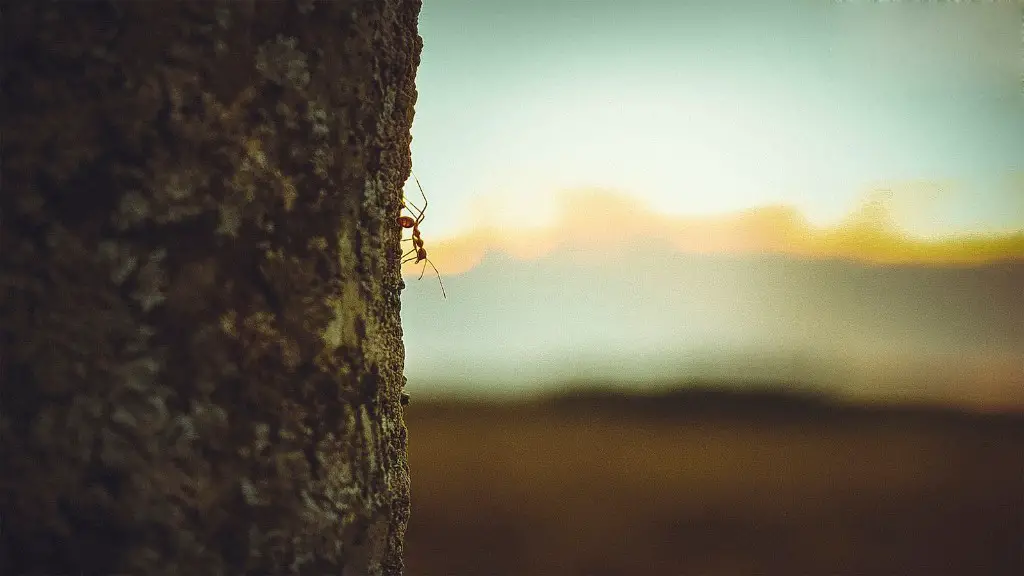We all know that ants are incredibly annoying and difficult to get rid of. But what if you could keep away the pesky insects without the use of chemicals? Planting certain types of plants can be an effective way to keep away ants from entering your home or garden.
The most popular garden plants that can repel ants naturally are lavender and mint plants. Lavender has strong anti-insect properties and it often used to keep ants away. The plant releases a strong fragrance that interrupts the pheromone trail of the ants that attracts then, making it difficult for them to find food and shelter. Besides, lavender has a calming effect which makes it ideal for your garden.
Mint plants, on the other hand, are known for their ant-repellent properties. Mint plants, when placed in an area, will help to restrict the entry of ants as the strong scent of peppermint acts as an aroma which is unpleasant to them. The leaves of the mint plant also have a slimy texture which helps to stop ants from crossing over the plant.
Today, experts have determined that certain essential oils have ant repelling properties. Oils such as cedarwood, eucalyptus, common sage and sweet orange have been found to be effective in keeping away ants. The oils can be used in diffuser machines to disperse them in the air and help repel ants. The oils can also be mixed with water and used in spray bottles.
In addition to the above-mentioned plants and essential oils, there are other natural ant repellents you can use. Tomato leaves, garlic, onion, and lemon can all be used to keep away ants. Tomato leaves have natural pesticidal properties, while garlic and onions can be mixed with water and used as a spray. Lemon can be used to create a barrier around the perimeter of your home or garden.
Sprinkle Powders
Besides using sprays and essential oils to keep away ants, you can also sprinkle powders around the perimeter of your home or garden. Powders such as diatomaceous earth and borax have been found to be effective in preventing ants from crossing over the area.
Diatomaceous earth is a natural powder made from fossilised algae which can be spread around the perimeter of your home to avoid ant infestation. Human and pet safe, it is one of the best natural ant repellents.
Borax is another popular powder used for ant infestations. It has been found to be effective in killing ants as well as in repelling them as the powder can be easily spread in affected areas.
Barrier
Creating a barrier around the perimeter of your home or garden can also be an effective way of keeping away ants. You can use physical barriers such as sand, rocks, and gravel or non-physical barriers such as lemon, garlic, and onions.
Physical barriers such as sand, rocks, and gravel can be used to prevent ants from gaining access into your home or garden. The physical barrier helps to restrict the movement of ants as it is difficult for them to cross over these obstacles.
On the other hand, non-physical barriers such as lemon, garlic, and onion can also be used to keep away ants. The strong smell of these items prevents the ants from entering your home or garden. The pungent aroma of these items is unbearable to the ants and thus, they avoid entering the area.
Habitat Modification
Habitat modification is another effective natural method of ant control. This process may involve eliminating sources of food in the area and removing water sources as ants feed on sweet and sugar-based foods.
Proper cleaning and tidying of your home or garden can also help in ant infestations. Make sure to sweep and vacuum the area regularly to ensure there are no stray food items which may attract ants.
You can also reduce the soil level around the perimeter of your house to reduce the space for ants to create nests and build tunnels. You can also create moats around moisture zones as ants are attracted to moist areas.
Natural Predators
Natural predators such as wasps, frogs, and spiders can also help to control ant infestations. These predators feed on ants and other small insects and thus, help to keep the ant population in check.
Wasps, especially, can be a great help in controlling ant infestations. Wasps sting the ants and thus, kill them. So, if you are dealing with an ant infestation, then you can introduce some wasps in the area to help control the ant population.
Frogs are also known to be effective in controlling ants. These amphibians feed on insects and thus, help to keep the ant population in check. If you want to attract frogs in your area, then you can introduce ponds and water bodies in your garden.
Spiders, just like wasps, feed on ants and other insects. If you are dealing with ant infestations, then you can introduce spiders in the area to help control the ant population.
Good Practices
Besides using natural repellents and predators, there are certain good practices you can adopt to keep away ants. The most important of these is to keep your home and garden clean and organised. Make sure to store food items in air-tight containers and dispose of any food waste properly.
In addition, you should also reduce sources of moisture in your home or garden. As ants are attracted to moisture, making sure there is no excess moisture in the area will help to keep away ants. You can also trim back any plants that are close to the walls of your home or garden as these are magnets for ants.
Finally, you should inspect your home or garden regularly and take necessary steps to keep away ants. If you notice any ant activity, then you should take immediate action to get rid of them and prevent them from coming back.
Electric Ant Repellers
Electric ant repellers are also a popular option among those looking to keep away ants. The electric ant repeller is a device which emits electromagnetic waves in order to repel ants. This is an effective way to keep away ants as the electromagnetic waves interferes with the natural pheromone trails of the ants, thus, making it difficult for them to find food and shelter.
While electric ant repellers are an effective way to keep away ants, they can be quite expensive. They are also not safe for humans and pets as the device emits harmful radiation. Thus, it is best to opt for natural repellents and predators when trying to keep away ants.
Find A Professional
If all else fails, then you should contact a professional exterminator. They will be able to identify the problem and determine the best way to get rid of the ants. They may use a combination of treatments and techniques to get rid of the ants and make sure they don’t come back.
Keep in mind that professional exterminators may use chemicals and other hazardous materials to treat your home or garden. Thus, it is important to discuss all your options before opting for a professional exterminator.
Homemade Repellents
Homemade repellents are also an effective way to keep away ants. These repellents are made from natural ingredients and are safe for humans and pets. Common ingredients in homemade repellents include garlic and onion, vinegar, cayenne pepper and lemon.
Garlic and onion are both known for their ant-repellent properties. You can grind them and mix with water to create a spray solution. Vinegar, when sprayed in affected areas, creates a repelling solution for ants as it destroys their pheromone trails. Cayenne pepper is another effective ant repellent and you can sprinkle the powder in affected areas to keep away ants. Lastly, lemon is also an effective ant-repellent and can be used to create a barrier around the perimeter of your home.
Take Precautions
No matter what method you use to keep away ants, it is important to take certain precautions. Make sure to wear protective gear such as gloves and masks when dealing with chemicals or even natural ingredients. Do not spray directly on food and make sure to store food items in airtight containers.
Also, research the different methods before opting for them as some methods may not be suitable for your home or garden. Moreover, remember that the best way to keep away ants is to keep your home or garden clean and tidy.
